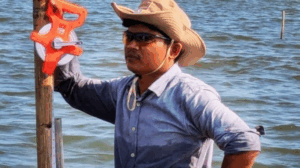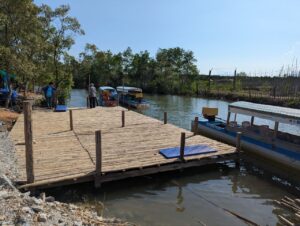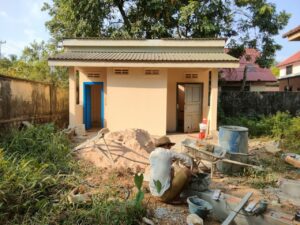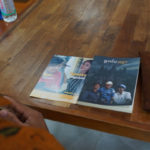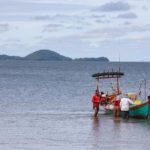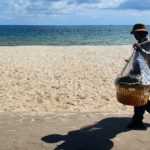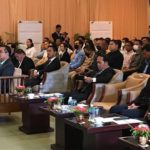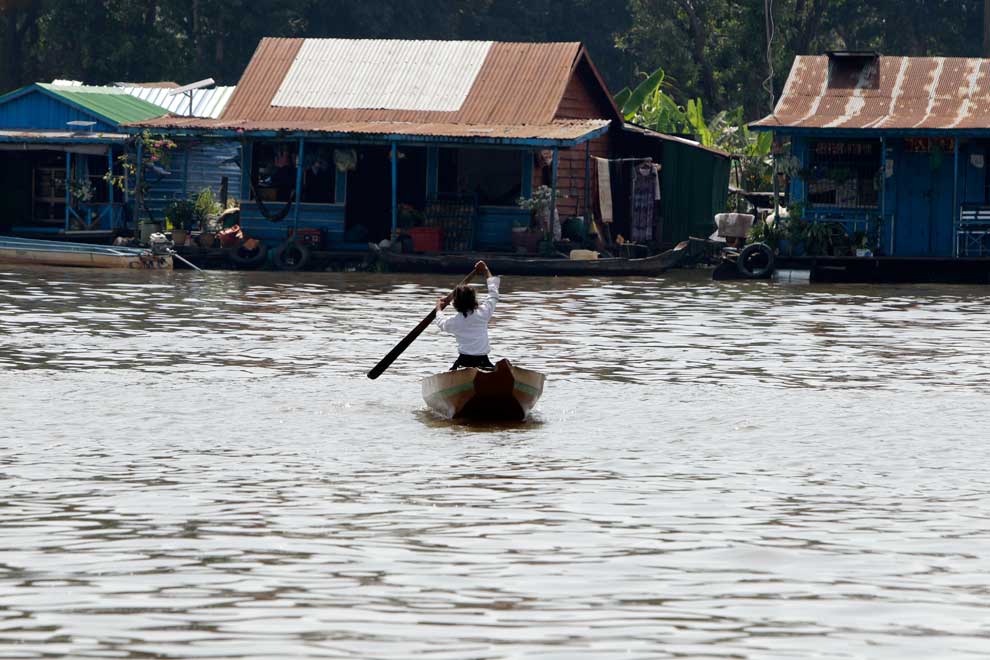
In the waters of the Tonle Sap Lake in Battambang province lies Prek Toal, a collection of floating villages with a way of life that is as unique as its setting. Here, the journey to education for the villages’ youngest members involves navigating small boats to reach their primary school.
As dawn breaks, children – some as young as 6 or 7 – set out in their small vessels.
The lake, ever-changing with the seasons, doubles as a playground and a classroom, teaching these students to balance academic learning with life’s practical skills.
Mab Sreynich lives in the village. She brings her two younger siblings with her to school in a small motorboat, although the 14-year-old admits that sometimes the trio missed classes if their parents need to use the boat.
“When we miss school, it’s usually because of poverty-related reasons, or our family needs the boat for something else,” she tells The Post.
In this aquatic community, not all of the families can afford the vessels needed to take the children to school, meaning access to education is limited in some families. This disparity highlights deeper economic challenges within the community.
A teacher’s perspective
Kay Sreysok, a teacher in her first year after studying pedagogy for four years in neighbouring Siem Reap province, explained that the children in the area live far away from Battambang town, and their living conditions often prevent many of them from completing 12th grade and graduating high school.
Due to a shortage of teachers and the low proficiency of Khmer literacy in the floating villages, Sreysok is well aware of the challenges faced by many students.
Sreysok, who receives study aid from a church-sponsored organisation, says she originally wanted to teach secondary school geology and biology, but now teaches sixth grade.
“Children here sometimes come to school, and sometimes they don’t,” she tells The Post.
“When asked, they usually mention a lack of transportation. Their parents have to go fishing, so I encourage the children to share their boats with friends,” she adds.
Sreysok is one of eight teachers at Prek Toal Primary School, all of them women.
Principal Von Pisey tells The Post how he has been in charge of the school, located in Koh Chivaing commune in Battambang’s Ek Phnom district since 2010.
Originally a floating school, a new concrete building was built to house the classrooms in 2019. At present, 280 students are enrolled, 132 of them girls.
“I am very grateful to the community, as teachers and alumni here actively participate in the development of the school. Some serve as contract teachers,” says Pisey.
He suggests that the education ministry consider recruiting some of the volunteer teachers who have worked with the community for many years, and integrate them into the state system.
Pisey, the sole male educator in the primary school, says there are currently eight teachers, including contract teachers and volunteer librarians, all of whom are women.
European support
Helping the children of impoverished communities on the lake is a focal point of European NGO Action Education, formerly Aide et Action.
It has been actively working to improve education in Cambodia’s floating villages, notably in Ek Phnom district. One of its key projects was the establishment of a library at Koh Chivaing Primary School.
This initiative was part of their broader efforts to promote literacy and educational resources in the Tonle Sap Lake’s floodplain communities.
Equipped with books, internet and smart TVs, the library serves as a valuable educational resource, particularly given the school’s remote and flood-prone location.
On a 20 January visit to the library, Vorn Samphors, country director of Action Education, explained that his organisation provides learning materials, more than 20 boats, and mobile and digital libraries to local communities.
It has also provided training to over 40 kindergarten teachers and renovated classrooms, while offering subsidies and scholarships to underprivileged children.
“After the Covid-19 disruptions, around 800 children nationwide – 80 of them from schools on the lake – who either suspended their studies or dropped out received remedial education to make up for the two or more years of school they missed,” adds Samphors.
Action Education works closely with other international organisations like Save the Children, which, supported by the Japan Social Development Fund and the World Bank, has launched a project to provide early childhood education to over 13,000 children in 137 floating villages along the Tonle Sap River and lake.
These efforts are crucial in addressing the unique educational challenges in floating communities.
Samphors lauds the dedication of each of the community’s teachers, both contracted and voluntary.
He explains that role models play a crucial role in inspiring children to strive for success.
Positive role models
He cites Bun Channimol as an example, saying that his organisation has arranged for 50,000 copies of her book “I have to Study” – part autobiography, part treatise on the transformative power of education – to be distributed throughout the country.
Channimol, now a successful entrepreneur, came from a disadvantaged background. Her commitment to learning transformed her life.
Despite facing homelessness and financial struggles, she persisted in her studies, even helping to support her family, while excelling academically.
She grew up in a remote part of Poipet town in Banteay Meanchey province, but was determined to succeed in her studies.
“For the sake of my education, I was willing to stay in a pagoda and fight to overcome many obstacles. After graduating, when I started working and established a successful company, my life changed. I aim to share the essential reasons for learning,” says Channimol.
She has compiled her life experiences into a collection that focuses on reading for children, a short work filled with pictures and short essays. Her goal is to inspire children and prevent them from dropping out of school.
“I believe that when children read books to their parents, parents will no longer push their children to help find work just for immediate earnings. Instead, they will invest in the future of their children, prioritising their potential over making quick money,” she adds.
Love of reading key
Prek Toal Primary School is one of six primary and secondary schools in Koh Chivaing commune.
In early 2023, Kheng Samnang, a librarian at Action Education, established a mobile library to serve all six of them.
“The establishment of the mobile library has motivated them to enjoy reading and learning. We provide not only 700 books but offer advice to parents, telling them not to end their children’s education prematurely and send them to work,” he tells The Post.
Despite facing challenges, Soeung Meng Y, a ninth-grade student at Koh Chivaing High School, and his classmate Ren Sreypich remain focused on their life goals.
Meng Y expressed his aspiration to become a tour guide so that he can help attract visitors to Cambodia, particularly to his community.
“At present, the most common ways to earn a livelihood in our community are fishing or operating a crocodile farm. Community-based tourism can attract visitors from around the world. That is why I want to become a tour guide,” he shares.
(Article was published on Phnom Penh Post / Publication date 23 January 2024)
